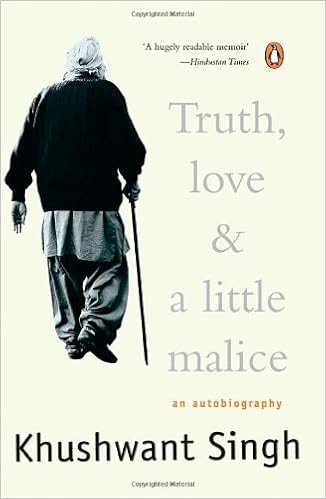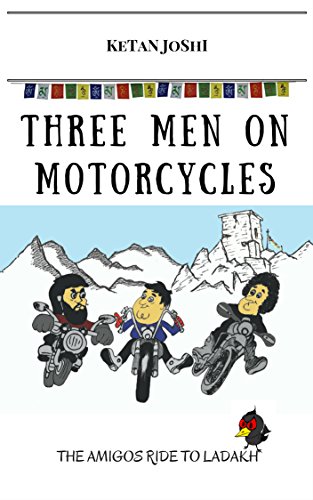Book Review of The Good, the Bad and the Ridiculous by Khushwant Singh
The Good, the Bad and the Ridiculous by Khushwant Singh is a
memoir, mostly his opinions on the famous (or, infamous) persons he met in his
life time. Each chapter of the book is devoted to a personality who was related
in some way to the Indian subcontinent. The narrative is characterised by total
absence of inhibition. He hid nothing, spared no one. Khushwant Singh criticised what was
wrong and openly acknowledged what was admirable. Some confessions are shocking
and almost sounded like gossip. Our system of learning deliberately hushes up
these aspects of history so much so that we have almost superhuman images of
our leaders. Our entire life we believe in these superhuman myths.
There are many portions of The Good, the Bad and the
Ridiculous that one may find quite uncomplimentary. Nobody accused him of falsifying. The only complaint against this book was perhaps this: Singh didn’t
respect the dead. But then Singh argues,
The truly good and the great are not diminished when their faults are exposed; on the contrary, they earn greater respect for rising to admirable heights despite their very human flaws.
The fact however remains that The Good The Bad and The Ridiculous is laden with
personal opinions, though Singh harboured no favouritism against any particular
individual, political party, race, or creed. Like I already mentioned, he
spared absolutely no one.
Some of the names mentioned in this book may not sound much familiar
to present day readers. I’d suggest they refer to Wikipedia to get the most out
of this book. Ali Sardar Jafri, Begum Para, Chetan Anand, Faiz Ahmed Faiz,
Firaq Gorakhpuri, I S Johar, Indira Gandhi, Pt Nehru, Krishna Menon, Md. Ali
Jinnah, VS Naipaul are the few of the 34 persons found mentions in Singh’s
book.
Though liberal and left-leaning, Khushwant Singh was
supportive of Congress party in general and Gandhi family in particular. He was
fond of late Sanjay Gandhi and considered him a man of action therefore much
needed to bring reform the sluggish political system of India. However that
didn’t prevent Khushwant Singh from censoring Mr. Gandhi. He openly expressed his concern
about the dictatorial streak in Sanjay Gandhi. He was critical of Indira Gandhi
and regarded her to be particularly arrogant.
The only person on record who made derogatory references to Indira’s looks and intelligence was her aunt, Vijayalakshmi Pandit. Indira never forgave her (or her daughters) for slighting her and denied her senior diplomatic assignments. Indira Gandhi never forgave anyone who said anything against her.
In The Good The Bad and The Ridiculous, Singh also criticized the heavy handed approach Ms. Gandhi
took at the time of Emergency, though he also believed that some of it was
necessary. But he was critical of the censorship of press. During Emergency
many people were jailed. Singh remarked,
There was, as I have said, a strong streak of vengefulness in Indira Gandhi. A lot of people who were jailed during the Emergency were victims of the spite of the Gandhis. Despite repeated requests and pleas for the release of such prisoners, Mrs. Gandhi refused to relent.
He expressed his opinion about Krishna Menon in what was
probably the longest chapter in his book.
I had briefly met Krishna Menon in my college days and had not detected any signs of genius in him. He was a sour-tempered barrister without briefs and spent his energies building up his India League and paying court to Pandit Nehru whenever he was in England. His appointment as high commissioner was badly received in India and the Indian community in England; people considered it gross favoritism.
Khushwant Singh came to know many secrets about Krishna
Menon while working under him.
Menon had an eye for good-looking women. He treated the husbands of good-looking women as friends. If he sensed tension between the couple, he became especially considerate towards them – he had great understanding for misunderstood wives.
Now here is one thing that I could relate to. I was working
in a Nationalized Bank where there was no dearth of bosses like Krishna Menon.
He built up a reputation of being a workaholic. He kept long hours, which he wasted on trivialities such as checking the menus of the canteen and the consumption of petrol by the office cars. He forced me to sleep in the office on many nights. There was never enough work to justify imposing this discomfort on me. He knew that I was very keen on games and looked forward to Saturday afternoons when I played tennis or hockey. Without fail, he would ring me up before lunch on Saturdays and ask me to attend some meeting he was holding in the afternoon. He had a strong streak of sadism.
Khushwant Singh’s last conversation with Krishna Menon was on phone.
This account was particularly juicy.
I was sharing a flat with Sheila Lall and we had a common telephone. Every night she would be out with one of her many lovers. The telephone would ring, but when I would pick up and say, ‘hello’ the line would go dead. I complained to Sheila. ‘That must be Krishna’, she told me. ‘He wants me to be his mistress – no strings attached.’ The next time the telephone rang, instead of saying the customary ‘hello’ I spat out with venom: ‘You bloody bastard, I know who you are! Stop ringing up at this hour or you will hear worse.’ There were no calls after that.
Khushwant Singh was awarded Padma Bhushan which he returned
as a protest against Indira Gandhi’s Operation Blue Star. After Indira’s
assassination by her own Sikh bodyguards, the whole country broke into riots.
Several Congress leaders lead the riots against Sikhs which lead to Singh’s
political disillusionment. He was against any kind of fundamentalism. Singh was
a fierce supporter of democratic values which is why he sensed a potent threat
in the rise of L. K. Advani.
The youth of today should be aware of the rise in communal politics and the dangers involved. If we love our country, we have to save it from communal forces and though the liberal class is shrinking, I do hope that the present generation totally rejects communal and fascist policies. I shun people who are at the forefront of this communalism, and this includes the likes of L. K. Advani.
Though agnostic himself, Khushwant Singh was against
religious bigotry. While analyzing the incident of demolition of Babri Masjid,
he raised some legitimate questions.
Advani should have left the political scene in a blaze of glory; but not many tears will be shed for him now. And for good reasons. Did he ever regret the role he played in the demolition of Babri Masjid? If he did, as he claims, why did he not tender an apology? Did he regret the anti-Muslim pogrom in Gujarat? If so, why did he protect Narendra Modi from being sacked, as prime minister Vajpayee evidently wanted? It was a symbiotic relationship between the two – Modi helped Advani win elections from Gandhinagar, Advani, in turn, exonerated him from the anti-Muslim pogrom charges of 2002. Is it possible that as home minister Advani did not know of Jaswant Singh’s mission to Kandahar to swap three jihadi militants for 150 odd Indians held hostage in hostile territory? There can’t be an iota of truth in his statement that he knew nothing about Jaswant’s mission till it was over. Advani once described Manmohan Singh as ‘nikamma’ – useless. It so happens that Manmohan is still very much in use, whereas Advani’s own erstwhile collegues have pronounced him of no use any longer.
The personality of L. K. Advani as described by Singh stands
in stark contrast with that of Mohammed Ali Jinnah whom our great populace
mistakenly believes to be instrumental in Partition. Here are a few lines taken
from the excerpts of his speech.
..he urged Muslims not to look upon the Hindu majority as a bogey, saying: ‘This is a bogey which is put before you by your enemies to frighten you, to scare you away from the cooperation with the Hindus which is essential for the establishment for the self-engagement.’
The Good, The Bad and The Ridiculous: Profiles was his last book.
After the book was released in October 2013 Khushwant Singh retired from his
writing career. I recommend this book not only as alternative history but also
for the unique literary style of Khushwant Singh that was a blend of journalism
and fiction.
 |
 |
 |









